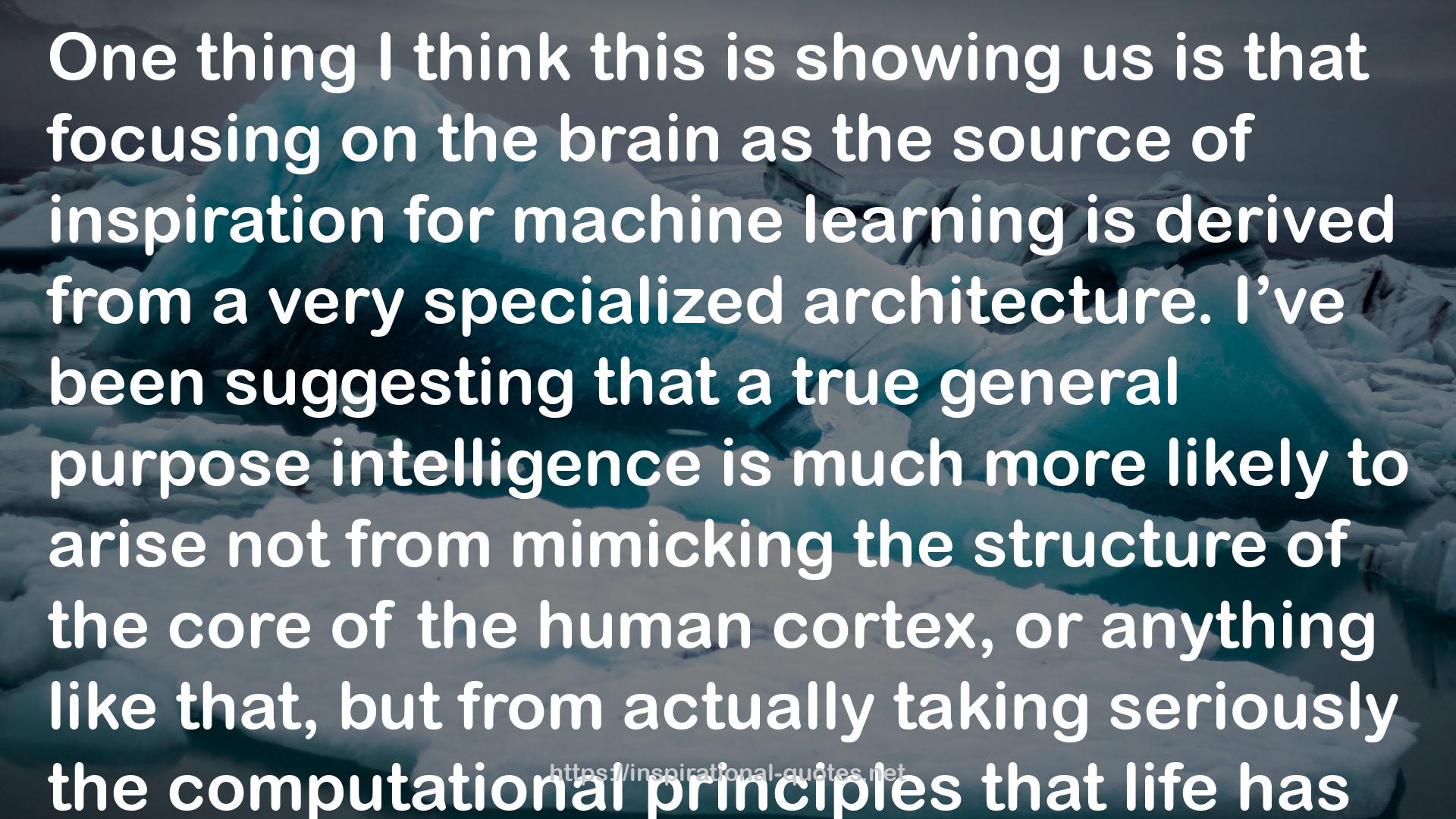" One thing I think this is showing us is that focusing on the brain as the source of inspiration for machine learning is derived from a very specialized architecture. I’ve been suggesting that a true general purpose intelligence is much more likely to arise not from mimicking the structure of the core of the human cortex, or anything like that, but from actually taking seriously the computational principles that life has been applying since the very beginning.
CHRISTINA: Paramecia?
MICHAEL: Even before that. Bacteria biofilms. All that stuff has been solving problems in ways that we have yet to figure out. They’re able to generalize, they’re able to learn from experience with a small number of examples. They make self-models. It’s amazing what they can do. That should be the inspiration. I think the future of machine learning and AI technologies will not be based on brains, but on this much more ancient, general ability of life to solve problems in novel domains. "
― Michael Levin
Image for Quotes

